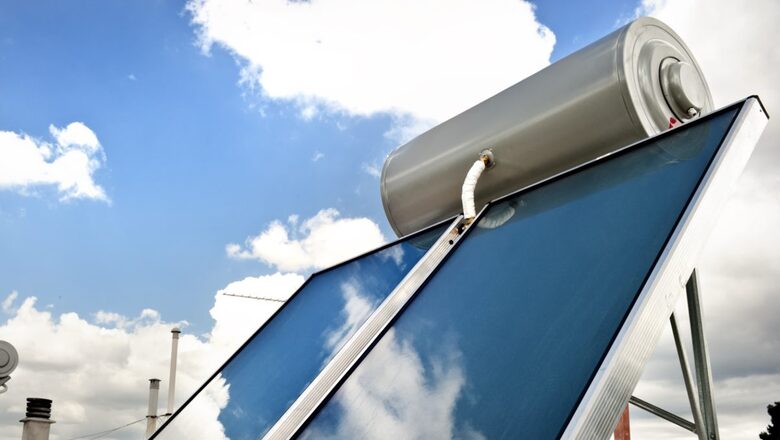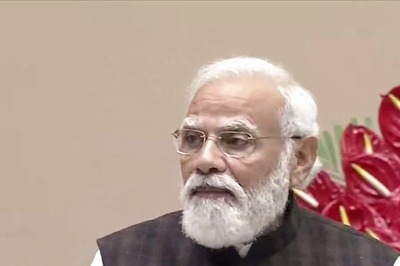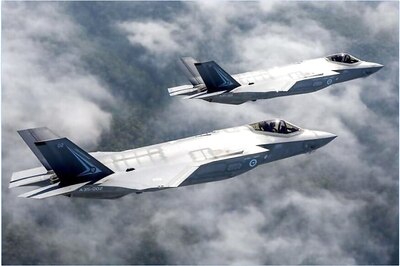
views
Selecting the ideal water heater for your home is a crucial decision that can greatly affect your daily comfort and energy usage. With a wide range of types, sizes, and features to choose from, it is essential to have a clear understanding of your household’s hot water needs and carefully evaluate different options to make an informed choice.
This article aims to provide you with a comprehensive guide to help you navigate the process of selecting the perfect water heater. We will explore important factors such as energy efficiency, capacity, additional features, warranties, installation requirements, and budget considerations. By the end of this article, you will have the knowledge and insights necessary to confidently choose a water heater that not only meets your requirements but also maximises efficiency and comfort in your home.
Factors to consider in choosing the right water heating system, as shared by By Mr. Rajesh Sachdev, CEO, Blutherm:
Understanding your household’s hot water needs:
To choose the right water heater for your household, it is important to understand your hot water needs. Assess your hot water usage by considering factors such as the number of people in your home, their habits, and the type of bathroom fixtures you have. This will help you determine how much hot water you need. Identify the peak demand periods in your home, such as mornings, to ensure that the water heater can handle the high demand without running out of hot water at the ideal temperature. Additionally, consider any future growth or changes in household size when choosing a water heater that can accommodate your future needs. It is better to invest in a unit that can handle your future requirements rather than having to upgrade too soon.
Different types of water heaters and their features:
There are five main types of water heaters:
- Conventional storage tank water heaters: These are reliable and affordable but have a limited supply of hot water. They store and heat a large amount of water in a tank.
- Tankless (on-demand) water heaters: These heat water as it passes through the unit, providing a constant supply of hot water on demand. They are energy-efficient, space-saving, and come in both electric and gas options.
- Heat pump water heaters: These extract heat from the air or ground to heat the water, making them highly energy efficient. They may have a higher upfront cost but they can save money on utility bills in the long run.Solar water heaters: These use the sun’s energy to heat the water, reducing reliance on traditional energy sources. While they require sunlight to work, they can significantly reduce the carbon footprint and save money over time.
- Multiple energy source water heaters: These are heat pump water heaters that have the provision to provide hot water using multiple energy sources like solar, electric, and gas, thus providing the user with maximum comfort using the optimum energy sources available for attaining maximum energy efficiency.
- Evaluating energy efficiency and cost-effectiveness: When choosing a water heater, it’s important to evaluate its energy efficiency rating. Look for labels like Energy Star or Efficiency Class Ratings, which show that the unit meets strict energy efficiency guidelines. By choosing a more efficient model, you can save money and help the environment.
- Additionally, compare the energy consumption and operating costs of different water heaters to make an informed decision. The best water heater is one that not only keeps your water hot but also keeps your wallet happy.
- Consider the long-term savings and payback period of more efficient water heaters, as they may have a higher initial cost but can result in overall savings through energy efficiency.
- Considering the size and capacity of the water heater: When choosing a water heater, it is important to consider the size and capacity. For tank-type water heaters, you need to determine the appropriate tank size to ensure it can meet your hot water needs without being excessive.
- For tankless water heaters, you need to calculate the required flow rate based on the number of fixtures you plan to use simultaneously.
- Heat pumps and solar water heaters consider factors like climate, available space, and desired temperature rise when determining the size.
- Consulting with a professional can help find the right balance between capacity and efficiency.
- Exploring additional features and technologies: Modern water heaters come with additional features and technologies that provide convenience and efficiency.
- Energy-saving modes and advanced controls allow you to adjust temperature and schedule heating cycles, saving energy and giving you more control over hot water consumption.
- Some water heaters can integrate with smart home systems, allowing communication with thermostats to warm water when needed.
- Anti-scale and anti-corrosion mechanisms help prolong the lifespan of the water heater and prevent maintenance and repairs.
- Comparing warranties, maintenance, and longevity: To make a good investment in a water heater, it is important to consider the long-term aspects. This includes comparing warranties, maintenance requirements, and the expected lifespan of different models.
- When it comes to warranties, it is advisable to read the fine print and understand what is covered and for how long. Water heaters with generous warranties indicate the manufacturer’s confidence in their product.
- Maintenance is also a crucial factor to consider. Some water heaters require regular flushing or descaling, while others have self-cleaning mechanisms. It is important to assess your willingness to perform maintenance tasks or factor in the cost of hiring a professional if needed.
- Lastly, not all water heaters last forever, so it is important to research and choose models known for their durability to avoid unexpected cold showers.
Installation requirements and considerations:-
- Installing a water heater involves considering space and location requirements, such as measuring available space and ensuring proper ventilation and clearance.
- The complexity of installation varies depending on the model, with some requiring professional installation or plumbing system modifications. It is important to check plumbing and electrical compatibility to avoid any issues with existing systems.
- Consulting with a professional is recommended if you are unsure about compatibility requirements.
Selecting the ideal water heater for your home is a pivotal decision that demands meticulous consideration of various factors. These include your hot water requirements, energy efficiency, capacity, additional features, warranties, installation prerequisites, and budget. By dedicating time to evaluating these aspects and comparing different options, you can ensure the utmost comfort and efficiency in your home while minimising energy expenses. It is advisable to seek guidance from professionals, peruse customer reviews, and make a well-informed decision that aligns with your specific needs. With the appropriate water heater in place, you can relish in the assurance of reliable and efficient hot water for many years to come.




















Comments
0 comment